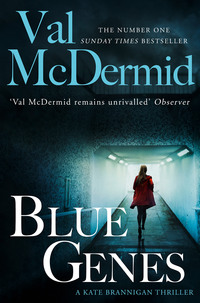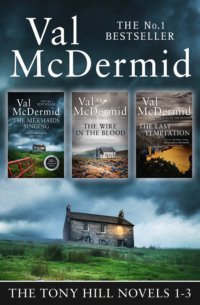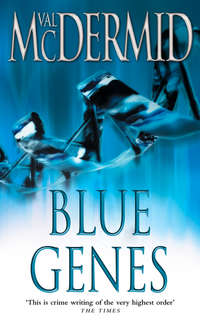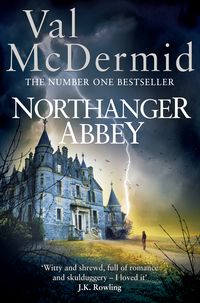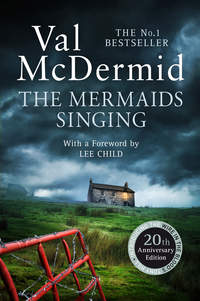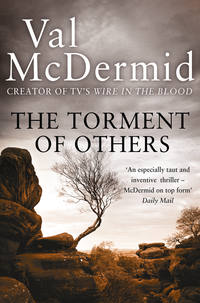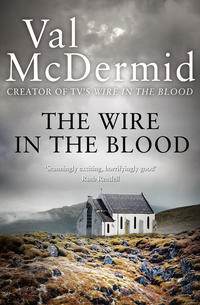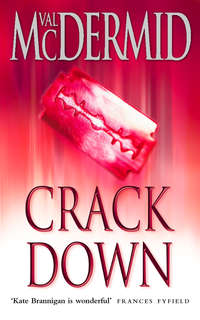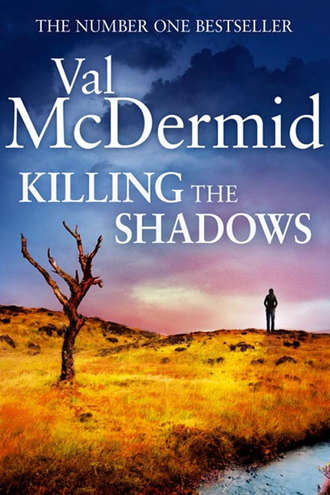
Полная версия
Killing the Shadows
Fiona was surprised. ‘They tell you about that on the tourist trip?’
He nodded. ‘I know, it’s not the sort of thing you’d normally boast about, is it?’
‘That’s where one of our murder victims was dumped,’ Fiona said slowly. ‘I was working on the assumption that only locals would be familiar with it.’
‘Well, I can tell you all about it,’ Kit said. ‘This woman shagged one of the guards and let the enemy attack the city, so they cut her throat to make sure she wouldn’t be doing that again in a hurry.’
‘Did you go down to San Juan de los Reyes? The big monastery church?’
‘I walked past it. I’m saving it for tomorrow.’
‘Did you notice the chains on the facade?’
‘It’s hard to miss them. According to the guide book, Fernando and Isabella had them hung up there after the reconquest of Granada. They were used to shackle the Moors’ Christian prisoners. I must say, if that’s typical of Isabella’s idea of decor, I can’t wait to see the inside. Eat your heart out, Home Front,’ he added with an ironic grin. ‘Why do you ask?’
‘That’s where the second body was found. You’ve only been here half a day, and already you know the story behind both body dumps. It makes me wonder if I’m right in what I’m thinking.’
Kit patted her hand and assumed an expression of mock-patronage. ‘Never mind, love, you can’t be right all of the time. You leave that to me.’
Fiona snorted with laughter. ‘I’m so glad I’ve got you to rely on. Now, are we going to eat dinner, or what?’
Fiona sipped a glass of brandy and studied the rough ideas she’d sketched out. In the background, the sound of Kit’s fingers tapping the keyboard of his laptop was faintly soothing. Even the mosquito buzz of his Walkman was comforting in its familiarity. He never interfered when she had work to do, something she was eternally grateful for. She had heard too many of her friends complain that if their man wasn’t working, neither were they supposed to be. Kit was always happy to occupy himself with his own work or a book, or to take himself off to a bar and make new acquaintances.
‘I am convinced that the perpetrator’s primary interest is not sexual satisfaction,’ she read. ‘However, the nature of the sexual mutilation he has performed postmortem is suggestive. I believe it is a way of demonstrating contempt for what he sees as the “weakness” of his victims, which leads me to postulate that his method of contact with his victims was one of physical or sexual appeal. At its most crude, I would suggest that he picked them up, possibly on an earlier occasion, and arranged to meet them on the nights of the murders. He may have baited his approach with the suggestion that his specialist knowledge might be of use to them in their professional lives. It is clear that he does not appear to pose a threat to those he has selected as victims. He knows the kind of places where his potential victims are to be found. This implies considerable local knowledge and suggests that he is a native of Toledo.
‘These were not killings that occurred out of sexual rage because of failure of performance or overarousal, but from a different motive entirely.’
So far, so good, she thought. She didn’t think there was much to argue with there. ‘These crimes demonstrate a relatively high level of sophistication and planning. It is therefore unlikely that the perpetrator is new to the world of criminal activity. He is far too comfortable with what he is doing. But if we accept that the motivation behind these murders is not primarily sexual, it therefore follows that it’s unlikely his previous crimes have been sexual in their nature.
‘Given that both crime scenes are significant tourist sites, and that both victims were foreigners, I believe the key to the killer’s motivation is his view of visitors to his city. He sees them not as a benefit but as interlopers who are not to be welcomed. I think it most likely that his past crimes will have targeted either tourists or businesses related to tourism. He most probably began with acts of vandalism against hotels or businesses catering for tourists, such as souvenir shops. This may have escalated into attacks on tourists themselves, such as muggings.’
Fiona sat back and considered. What she was suggesting was by no means a conventional profile of a serial killer, but she had been struck from the first by the unusual nature of the crime scenes. Most killers left their bodies where they killed them or chose carefully selected body dumps that had significance only because they were unlikely to be spotted abandoning the corpse. This killer had taken a high risk with his second victim, so the sites were clearly symbolic for him at a deep level. For once, where the bodies had been found seemed at least as important as the selection of the victims. They weren’t just places that symbolized violence. They would also have meaning for the casual visitor to the city, as Kit’s experience demonstrated.
She was pleased with the progress she had made. Now it was up to Salvador Berrocal to persuade the local police to give her the data she needed on crimes against property and persons related to tourism. Armed with that information, Fiona would be able to apply her theories of crime linkage to figure out which crimes had common offenders.
Once she had established which acts were part of series as opposed to isolated events, she would map the relevant scenes of crime on a street plan of the city that had been scanned into her computer. The powerful geographical profiling software loaded on her laptop would apply a complex series of algorithms to the points on the map. It would then chart probable areas where the perpetrator of those crimes might live or work. She could add the murder scenes to the mix, and if they didn’t significantly distort the areas the computer had suggested, she might be able to indicate to Berrocal the area of the city the killer called home.
Ten years ago, Fiona mused, she’d have been laughed off the platform if she’d dared to suggest that a mixture of psychological profiling, crime linkage and geographical profiling could lead to the capture of a killer. Back then, there simply hadn’t been powerful enough computer programs to crunch the numbers fast enough, even if anyone had considered this an area worth investigating. The world of criminal investigation had changed faster than anyone could have imagined. At last, technology was outstripping the ability of criminals to keep one step ahead of it. And she was lucky enough to be part of the revolution.
And in the morning, she could put her skills to the test once more. Working with the police to capture killers was the most exciting thing she had ever done. But she never lost sight of the fact that she was dealing with real lives, not just a series of mathematical events and computer calculations. If what she did couldn’t save lives, it was ultimately meaningless. And so, every case she was involved in became not only a professional challenge. It was nothing less than a measure of herself.
10
Fiona walked into the smoky office just after eleven. Berrocal and his two detectives were all deep in telephone conversations, barely looking up at her arrival. She’d faxed her report to Berrocal at eight, knowing he’d need some time to assemble the material she needed. She’d used the three hours to have a leisurely breakfast in bed with Kit then to accompany him to see the definitive El Greco, the Burial of the Count of Orgaz, displayed in splendid isolation in an annex to the church of San Tomas. It had been a better start to the day than reading police files.
The stacks of folders on her desk looked the same as they had the day before. She waited for Berrocal to replace the receiver, then spoke. ‘Hi. Are the reports on the vandalism and assaults not here yet?’
Berrocal nodded. ‘That’s them on your desk. Unsolved are on the left, the solved on the right. These are from the last twelve months.’
‘Quick work.’
He shrugged. ‘They knew I’d be on their backs till they came up with what you asked for. They like a quiet life. Can anyone help you with this, or is it something you must do yourself?’
‘Unfortunately, I need to analyse the data myself,’ Fiona told him. ‘What about a map of the city?’
Berrocal raised a finger, admonishing himself. ‘I have them here.’ He turned to the remaining empty desk and raked around in the top drawer, coming up with a small tourist map and a larger, more detailed street map. ‘I wasn’t certain which one would meet your needs best,’ he added, handing them to her.
‘I don’t suppose they’ve got a scanner here?’ Fiona asked without hope.
Berrocal shrugged. ‘There must be one somewhere.’
‘I need the detailed map scanned in as a GIF file,’ she said, opening her laptop case and fishing out a blank floppy. ‘If you can have it put on the floppy, I can transfer it to my system.’
He nodded, turning to the nearer of the two detectives. He snapped something in fast Spanish. The detective quickly ended his call and gave his boss a quizzical look. Berrocal thrust the map and the floppy at him and rattled off a string of short sharp sentences. The detective gave Fiona a radiant smile and made for the door. Clearly even being a gopher for the English consultant was preferable to being cooped up in this box. ‘E café con leche para dos,’ Berrocal added with a wicked grin at the disappearing back.
Thanks,’ Fiona said, reaching for the first file. She had to devise a checklist of significant factors; time of the offence, date of the offence, what form the vandalism had taken, and a dozen other particulars. Then she had painstakingly to enter the details. Where there was a known offender, she also had to input every piece of information relevant to his history and his previous crimes. There were forty-seven files to work through and the fact that everything was in Spanish slowed things down even further. It made for a long day, punctuated by regular cartons of coffee and snacks that she couldn’t have itemized five minutes after she’d eaten them, so intense was her concentration.
Finally, she sat back and waited while the computer sorted the data and offered up the results of its calculations. Unsurprisingly, most of the incidents came up as discrete events. But among those, there were three groupings of crime reports that each appeared likely to have the same perpetrator. The first was a series of attacks on souvenir shops. In every case, the crimes had taken place between two and three in the morning on weekdays. The first three involved paint being thrown across the windows. But then there had been an escalation. Four further attacks had taken place where the windows had been smashed and paint thrown on to the shops’ stock. All the crimes were from the unsolved pile.
A second series featured graffiti daubed on the walls of restaurants and hotels. But here, the slogans were political—right-wing rants about Spain for the Spanish, and the banishment of immigrants. Fiona immediately discounted these as the work of her killer.
A third series emerged from the unsolved pile. Within the past four months, three tourists had been attacked on their way back to their hotels in the early hours of the morning. Berrocal had already told her that Toledo was, by Spanish standards, an early-to-bed city, with most of the cafés and restaurants closed by eleven. But there were a few late-night bars, and the victims had all been in one or other of those. They had been walking back to their hotels alone when a masked man had jumped out from the mouth of an alley and attacked them. There had been no demand for money, just a silent and savage assault lasting a few minutes before their assailant ran off into the maze of narrow passages nearby.
Fiona gave a deep sigh of satisfaction. When crime linkage worked well, it was like a small miracle unfolding before her. Now she could enter the locations of the two significant series into her geographic profiling software and see what emerged.
Kit had watched Fiona walk up the hill from San Tomas, admiring her smooth stride and the way the cut of her trousers gave emphasis to the gentle swell of her hips. I am a lucky bastard, he congratulated himself, luxuriating briefly in the memory of their leisurely morning in bed. Even if she did his head in sometimes with her perpetual need to analyse and dissect everything and everyone who crossed her path, he wouldn’t have swapped her for any woman he’d ever met. One of the things he loved about her was her dedication to the job she did. But even when she was possessed by a case, she never lost sight of the importance of their relationship.
This morning, for example. She could have played the ‘I’m indispensable’ card and headed straight for the police station. But she’d assured him there would be nothing yet for her to get her teeth into and she’d taken time out to share something he’d wanted to do. He tried to do the same thing himself, but he knew he was worse at it than she was. When he was head down, going flat out for the finishing line of a book, he could think of nothing but the next chunk of text he had to get on to the screen. The only way he could show his love for her then was to cook for her and take the time to sit down and eat with her. It wasn’t much, but it was better than nothing.
He spent the rest of the day being a tourist, and got back to the hotel just after six, taking a bottle of red wine up from the bar to their room. He had no idea how long Fiona would be, but that wasn’t a problem. He turned the TV on to MTV Europe, poured a glass of wine, booted up his computer and collected his e-mail. The only significant message was from his agent, confirming a deal with the independent film makers who wanted to adapt his first novel for TV. Personally, he thought The Dissection Man was unfilmable, but if they were prepared to pay him large sums of money to find that out for themselves, he wasn’t about to complain.
Not that he cared much about money. Both his parents were teachers and he and his brother had grown up in an environment where money had never really been an issue. There had always been enough and he’d never been conscious of having been deprived of anything because his parents couldn’t afford it. He hadn’t had much of an advance for his first or his second novel, and he reckoned no one had been more surprised than his publishers when The Blood Painter had become an overnight cult sensation then made the crossover to mainstream success. As a result, he guessed he’d earned more money in the previous two years than his parents had in the past ten.
And he didn’t know what to do with it. A large chunk had gone on buying the house, but other than that, he and Fiona had few material desires. He didn’t care about designer clothes, he had no interest in performance cars and he still preferred the kind of holiday where they’d fly somewhere, pick up a hire car and stay in cheap motels or guesthouses. His biggest expenditure was probably on music, but even there he economized by waiting till he was in the States or Canada on a book tour and indulging himself in a CD-buying spree at their lower prices.
The only real indulgence he’d craved was a retreat where he could escape to write when the book was going through that difficult middle period. Beginnings were always easy, but by the time he’d worked through the first hundred pages, depression would strike as he realized he was already falling far short of what he’d aspired to. At that stage, every interruption was a torment. Fiona was about the only person who didn’t piss him off, but that was because she knew when to leave him alone.
It was Fiona who had suggested he buy a cottage in the wilds where he could go and work undisturbed for however long it took him to get over the hump of dissatisfaction. Usually, the truly terrible phase lasted for about six weeks or a hundred and fifty pages, and Fiona had informed him that she’d rather do without his company if that helped him to return more quickly to his normal cheerful self.
So he’d bought the bothy. It never ceased to amaze him that anywhere on the British mainland could feel so isolated. From the two-roomed cottage, no other human habitation was visible in any direction. To get there, he had to fly to Inverness, pick up the elderly Land Rover he garaged there, stock up with a supply of groceries, then drive for another two hours to the eastern fringe of the vast wilderness of Sutherland. His power came from a diesel generator, his water from a nearby spring, his warmth from a wood-burning stove that also heated enough water to half fill his bath. At Fiona’s insistence, he’d invested in a satellite phone, but he’d only ever used it to link up his computer for e-mail.
The isolation was more than most people could have borne. But for Kit, it was a lifeline. With the only distraction an occasional excursion to shoot rabbits for the pot, he invariably found he ploughed through the hardest sections of his books in far less time than it took in London. And the quality of his work had improved as a result. He knew it, and so did his readers.
And there was no denying that absence enriched his relationship with Fiona. Even though they were in daily e-mail contact—often swapping posts that would have qualified as pornography in any other context—their reunions had all the ardour of the first days of their affair, when no amount of physical contact was too much and no demand too outrageous. Just thinking about it excited him. Who would imagine that behind Fiona’s cool exterior was a sensualist who had turned the hard man of British crime fiction into a romantic fool?
She was always at her most passionate when she’d been forced to confront violent death. It was as if she needed to reaffirm her connection to life, to reassert her own vitality in defiance of a killer. Kit might deprecate the source, but he had to confess he wasn’t averse to reaping the benefits.
Mentally, he shook himself. Anticipation of Fiona’s return was the surest way to distract him from what he was supposed to be doing. He had decided to do one of the periodic revisions he routinely ran through to check that everything in the book was flowing smoothly. He typed in the commands to print out the last sixty pages and flicked the TV over to BBC World to check out the news headlines.
The early evening news magazine programme was in full flow, the interviewer winding up what sounded like a deeply dull item about the state of the Euro, courtesy of a junior Treasury minister. The studio anchor’s voice suddenly picked up urgency. ‘And news just in. Police in Edinburgh have identified the victim of a brutal murder that took place in the heart of the Scottish capital in the early hours of this morning as the international bestselling thriller writer Drew Shand.’
Kit’s forehead wrinkled in an incredulous frown. ‘Over to our correspondent James Donnelly in Edinburgh,’ the presenter continued.
A young man with a serious expression stood in front of a grey-stone building. ‘The mutilated body of Drew Shand was found by a police officer on a routine patrol of the Royal Mile just after three this morning. Police cordoned off an area behind St Giles’ Cathedral which remains the scene of police activity. At a press conference earlier this afternoon, Detective Superintendent Sandy Galloway revealed that the victim’s throat had been cut and his face and body mutilated with a knife. He appealed for anyone who was in the area between the hours of midnight and three a.m. to come forward.
‘In the last few minutes, the identity of the victim was revealed as award-winning thriller writer Drew Shand. Thirty-one-year-old Shand was hailed as one of the new stars of British crime fiction when his first novel, Copycat, shot to the top of the bestseller lists on both sides of the Atlantic and won the John Creasey Memorial Dagger and the Mcvitie prize. The television adaptation of Copycat also went on to win several major awards and has been widely screened abroad.
‘A former English teacher, Shand lived alone in the New Town area of the city. His second novel, The Darkest Hour, is due to be published next month. Shand, who was openly homosexual, was known to frequent several Edinburgh gay bars, including at least one believed to cater for those whose tastes run to sadomasochistic practices. At this point, police are refusing to suggest any possible motive for the killing.’
‘Fucking typical, blame the victim,’ Kit snarled, slamming his glass down so hard the stem broke, sending a stream of red wine across the marble floor. Ignoring it, he took a swig straight from the bottle. He scarcely registered its taste. ‘Drew Shand,’ he muttered, tilting the bottle to his mouth again. He shook his head in disbelief. ‘Poor bugger.’ He had a sudden flashback to the panel they’d done together at the last Edinburgh Book Festival, the one and only chance he’d had to appear with the rising star. He remembered Drew leaning forward, elbows on knees, hands spread open, face earnest as he struggled to make the point that the violence in Copycat had always been functional, never gratuitous. The audience had been won over, Kit recalled, although he’d had his doubts. Then afterwards, sitting outside the Spiegeltent, drinking Becks straight from the bottle, the pair of them had carried on the discussion, lacing their seriousness with the gallows humour beloved of police officers and crime writers alike. A vivid image of Drew throwing his handsome head back and laughing imploded behind his eyes like a terrible firework.
Kit suddenly realized how he longed for Fiona’s presence. A reviewer had once remarked that Kit made his readers care so much for his fictional victims that the reader felt the shock of losing a real friend when he killed them off. At the time, he’d been proud of the comment. But back then, he’d never personally known someone who had been murdered. Sitting in a strange hotel room in an unfamiliar city, numbed with the shock of Drew Shand’s death, he finally recognized the critical comment for the absurdity it had been.
Now he knew the truth.
11
Fiona stretched extravagantly and looked at her watch. To her astonishment, it was ten past seven.
Her movements attracted the attention of Berrocal, who had been absent for most of the day but had returned a short while before. ‘You are making progress?’ he asked.
Fiona outlined the results of her day’s work. ‘I need a break now,’ she concluded. ‘It’s easy to start making mistakes when you’ve been staring into the screen all day, and if I get the crime-site plotting wrong, the results are worthless.’
Berrocal crossed to her desk, peering over her shoulder at the laptop. ‘This is remarkable,’ he said. ‘A system like this would make our job so much easier.’
‘Quite a few police forces are using it now,’ Fiona told him. ‘The linkage program works best with crimes against property, like burglary and robbery. The version I’m using is experimental. It lets me enter my own set of variables for the checklist, so it needs a certain level of expertise to use it. But the basic version with the fixed parameters reduces burglaries wherever it’s been used. It helps clear outstanding crimes from the books as well as current cases. You should get your bosses to invest in the software.’
Berrocal snorted. ‘Easier said than done. My bosses don’t like to spend money on anything they can avoid.’
‘You did well to get them to pay for me, then,’ Fiona said tartly, standing up and switching off the computer.
‘When it comes to losing tourist dollars, they panic. Suddenly, we get resources that we’d never get in any other circumstances. So, what are your plans for the evening? Would you like me to take you and Kit for dinner somewhere typically Toledan?’ He stepped back to allow her to escape the confines of her desk.
‘That’s kind of you, but I don’t think I’d be very good company. I’ve got all this stuff buzzing round my brain, and I’d rather just go back to the hotel and have a bite to eat there with Kit. After that I’ll probably feel like doing more work.’


